Law Enforcement Cooperation

date: 22/06/2021
With organized crime, terrorism and cybercrime getting increasingly transnational, better flows of information, trust and collaboration among law enforcement agencies is crucial for anticipating, preventing, protecting from and responding to criminal acts and malicious attacks. The Counter-Terrorism Agenda for the EU reasserts that cooperation, both at the EU level and internationally, is paramount to responding efficiently and minimizing the impact of terrorist attacks. Cooperation is key for swift investigation and prosecution of the perpetrators. The European Commission is actively supporting the cooperation among law enforcement agencies across the EU and is committed to build a real law enforcement community and culture in the EU.
Streamlining the Legal Architecture for Cooperation
In a crisis situation, in the case of a terrorist attack or for their daily business of fighting crime, law enforcement units must be able to support each other across borders. For this, an EU “police cooperation code” is in the pipeline. Its purpose will be to consolidate the fragmented legal framework for cross-border police cooperation, which is currently based on a myriad bi-, tri- and multi-lateral cooperation agreements. In addition to EU instruments like the 1990 Convention Implementing the Schengen Agreement (CISA), the Prüm Decisions relating to operational cooperation (joint operations) and the Council Framework Decision 2006/960/JHA on simplifying the exchange of information and intelligence between law enforcement authorities of the Member States of the EU, there are multiple agreements among Member States creating a complex web of legal instruments. The idea for an EU “police cooperation code” is to streamline, enhance, develop, modernize and facilitate law enforcement cooperation and information exchange among relevant national agencies and, thus, to support Member States in the fights against crime, including serious and organized crime and terrorism.
Promoting operational cooperation
Operational cooperation between Member States’ law enforcement authorities is essential to ensure security inside the EU. The Commission supports law enforcement agencies by facilitating information exchange, helping Member States to implement existing legislation on cross-border cooperation, providing specific support by agencies such as the EU Agency for law enforcement cooperation (Europol), providing training by the EU Agency for law enforcement training (CEPOL) and supporting national actions through direct funding, training and research and innovation.
- The European Multidisciplinary Platform Against Criminal Threats (EMPACT)
EMPACT is the flagship EU instrument for cooperation to fight organised and serious international crime. It is a platform for cooperation between EU Member States’ law enforcement and competent authorities, EU agencies (Europol, Frontex, CEPOL, Eurojust etc.), EU institutions, and, where relevant, other public and private organisations and non-EU countries. Running in 4-year cycles, the present one being from 2018 to 2021 and the next one from 2022 to 2025, EMPACT targets defined criminal threats considered to be the most pressing in the EU (for example drug trafficking, trafficking in human beings, cybercrime, etc.). On average, around 200 operational actions take place yearly, including joint investigations, training, prevention, cooperation with third countries, or improvement of the intelligence picture on certain new crime phenomena.
The independent evaluation of EMPACT concluded that this instrument is relevant and effective in tackling the most pressing threats posed by organised crime groups. It has become increasingly efficient, proves to be internally and externally coherent, and brings EU added value by providing a sound platform for co-operation that enables EU Member States to achieve better results against serious and organised crime, than if they had tackled these issues alone.
In April 2021, the Commission presented a new EU Strategy to tackle Organised Crime, focusing on boosting law enforcement and judicial cooperation, tackling organised crime structures and high priority crimes, removing criminal profits and ensuring a modern response to technological developments. This strategy strongly articulates with EMPACT and is accompanied by a Commission Staff Working Document on EMPACT.
- Joint investigation teams (JITs)
The Commission also supports the setting up of joint investigation teams among the competent authorities of minimum two EU countries. These teams carry out specific investigations following defined objectives for a limited period of time. Seconded members from other EU countries, Europol, the EU Agency for criminal justice cooperation (Eurojust) and the European anti-fraud office (OLAF) may take part in a JIT and support the team in various ways.
- Support to Law Enforcement Networks
The Commission funds and actively cooperates with a number of law enforcement networks in a bottom-up approach. The networks specialize in different fields of law enforcement and organize joint trainings and exercises, develop guidelines, provide expertise, animate channels and capabilities for cross-border communication and operations, and improve the pooling of resources that can be mobilised during incidents. The work of the networks is fundamental for the creation of trust among law enforcement officials and agencies, for energizing the channels of communication and cooperation and for conceiving a genuine EU law enforcement community. The new EU CT agenda highlights the importance of the law enforcement networks in fostering cross-border police cooperation, delivering in the objectives of the new EU Security Union Strategy, addressing cross-border organised crime and terrorism, and preparing for and responding to crises and large events impacting notably transport modes and public spaces.
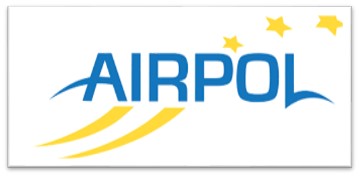
Airpol is the network for police and border guard units at EU airports focusing on aviation security, airport policing and air border security. The main objectives of Airpol are to further develop the co-operation between police and border guard units at EU airports and to raise the general level of competence in priority areas responding to defined threats. 25 EU member states take part in the Airpol Network. The network is in close cooperation also with countries outside the EU: Australia, Canada, Israel, Morocco, Norway, Switzerland, United Kingdom, United States of America. Airpol organizes multiple meetings, training sessions and workshops, produces manuals, guidelines and training videos.
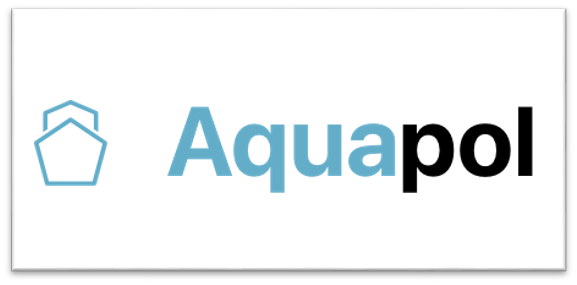
Aquapol is the network for cross-border cooperation in waterborne law-enforcement. It aims to enhance cooperation and share knowledge and training preparing for new types of security threats. It also represents the needs and concerns of waterborne law-enforcement authorities in front of European institutions in order to have law enforcement needs known and considered by law and policy making bodies. It works towards developing partnerships with agencies like Frontex or Europol. It produces guidelines and leads initiatives like development of common processes toward environmental crimes, lobbying for joint actions to fight gross labour abuses on board river cruise vessels or towards setting up of proper control procedures for autonomous navigation. Aquapol has 24 (1 observer) members from 14 EU Member States and Switzerland.
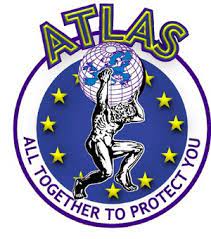
The ATLAS Network was established following the terrorist attacks of 11 September 2001 as an informal association of Special Intervention Units under the aegis of Police Chiefs Task Force with a view to exchanging know-how and conducting joint exercises. In 2008, the Council formalised the cooperation in a Council Decision introducing also the possibility of mutual assistance in crisis situations. To facilitate closer relationship between ATLAS and Europol, an ATLAS Support Office has been established in the structure of Europol’s Counter Terrorism Centre and in 2020, the ATLAS funding was included in the Europol budget. By establishing common platforms for training and tactics, sharing equipment, and by closely cooperating in Member States’ trans-border areas, the proficiency and expertise of all special intervention units increases and therefore benefits public security. The first Aircraft Centre of Excellence, notably for the training on breaching aircraft doors, has been inaugurated in Livorno, Italy, in June 2021.
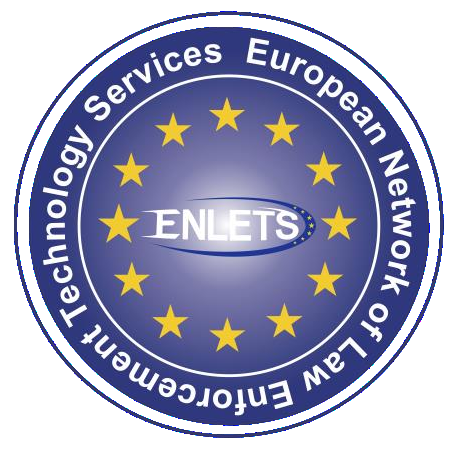
ENLETS is the European Network of Law Enforcement Technology Services. Tasked by the Council to organise a technology watch function, ENLETS ensures a better and effective involvement of the end users of the internal security authorities in the EU's security related research and industrial policy.
At the heart of ENLETS are the thematic Technology Interest Groups (TIG) which connect associated LEA practitioners from MS to collaborate and engage on the specific topics relevant to the ENLETS strategy. Five TIGs have been currently set up: Internet Investigations, Count-UAS, Financial Investigations, Mobile Solutions and Public Order.The aim is to stimulate standardization and procurements, share best practices, stimulate coordination and raise awareness related to new technological solutions. All Member States but Malta are part of the network, joined by Norway and Switzerland.
You can find the issue #2 of the ENLETS newsletter here and if you want to subscribe, please contact communication@enlets.eu
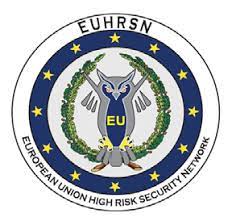
EU HRSN is the European High Risk Security network. It connects representatives from operational units, civil organizations, police organizations with military status and/or military units tasked with the prevention, detection, armed protection and securing of civil critical infrastructure, soft targets and transport hubs against acts of terror and severe violence. The network’s objectives are to enhance best practice sharing, training and tactics, and to improve preparedness against future attacks by trainings, technical expertise and advice. The focus of the network is on prevention, detection and response in the initial phase of a terrorist attack and does not cover the organized response and intervention normally carried out by Member States governments. 16 EU Member States take part in the network with Norway, UK and USA having observer status. In close cooperation with DG HOME, EU HRSN was actively involved in the vulnerability assessment tool, the protective security advisory Program and the recent publication of the “Quick Guide to support the protection of places of worship”.
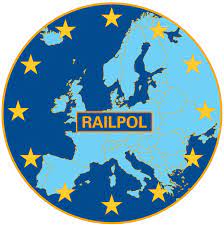
RAILPOL is the European Association of Railway Police Forces established in 2004. Its aim is to enhance and intensify international railway police cooperation in Europe, to prevent threats and guarantee the effectiveness of measures against cross-border crime. Within RAILPOL there are working groups handling specific themes or problems, aiming to improve the exchange of (operational) information and techniques. RAILPOL promotes public private partnership and strives for a close cooperation with stakeholders in the railway environment and with international law enforcement organisations as well as the police networks policing the physical infrastructure in Europe, like road, air and water. The Commission’s DG HOME has developed close cooperation with RAILPOL to be able to face newly emerging threats by experimenting prototypes for the detection of CBRN (chemical, biological, radiological and nuclear) threats and by developing operational concepts for the law enforcement community.
- EU specialized agencies
EU agencies are distinct bodies from the EU institutions with separate legal entities set up to perform specific tasks under EU law. The specialised agencies supporting operational cooperation between EU countries' law enforcement authorities in different fields are:
- Europol
- CEPOL
- the European border and coast guard agency (Frontex)
- the EU Agency for the operational management of large-scale IT systems in the area of freedom, security and justice (eu-LISA)
- the European monitoring centre for drugs and drug addiction (EMCDDA)
- the European asylum support office (EASO)
- Eurojust.
These agencies help assess common security threats, define common priorities for operational action, and promote and facilitate cross-border cooperation and prosecution. They provide for a structured dialogue at European Level.
- Additional EU level structures facilitating cooperation
There are additional frameworks which provide a legal basis for a quicker and structured cooperation among law enforcement authorities of EU member states. The Council decision on cooperation between special intervention units defines the general rules and conditions under which these units can intervene and provides for regular meetings and joint trainings.
For law enforcement cooperation, there are established national Single Points of Contact (SPOCs) for international law enforcement information exchange as well as Police and Customs Cooperation Centres (PCCCs) in internal border regions. The SPOC is a multi-agency organisation, composed of staff coming from different services and / or Ministries including criminal police, public order police, border guards, customs, and judicial authorities. National SPOCs have the most comprehensive national competence and access to all relevant available national databases, covering the broadest geographical and material scope possible, to be able to handle the full range of possible requests related to law enforcement cooperation. A Police and Customs Cooperation Centre is a support structure for exchanging information and providing support to the activities of the operational agencies responsible for police, border and customs tasks in the border area. There are close to 60 PCCCs located across the EU. PCCCs provide added-value through bringing together on one site the law enforcement authorities of different Member States.
Police cooperation among Schengen countries is further bolstered by Schengen evaluation and monitoring mechanism.
- Training activities
The EU Agency for law enforcement training (CEPOL) develops, coordinates, and implements training and learning activities for law enforcement officers on topics encompassing leadership, law enforcement techniques, EU cooperation, economic crime, pre-deployment and capacity building.
The European Commission is committed to facilitate and further promote cooperation among law enforcement authorities of EU member states. To combat cross-border crime and terrorism in the EU, there must be not only efficient administrative and legal frameworks, but also trust and awareness among the actors. The Commission animates networking, supports exchanges of best practice and facilitates frequent exchanges among law enforcement authorities. The result is quicker, safer, and more structured law enforcement cooperation for the benefit of all EU citizens.
